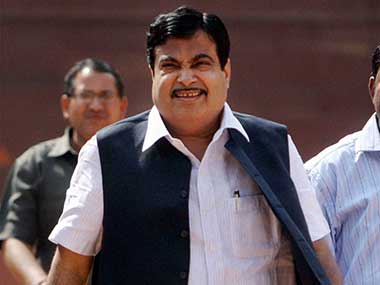Ranchi, Oct 7: Congress on Monday said it welcomed Election Commission serving notice to Union Minister Nitin Gadkari for allegedly asking voters at a public meeting in poll-bound Maharashtra to accept bribes, as it will prevent such campaigning in states where elections are due this year.
 "We welcome ECI serving notice to Nitin Gadkari and expect strict action against him," PCC General Secretary Sailesh Sinha said in Ranchi.
"We welcome ECI serving notice to Nitin Gadkari and expect strict action against him," PCC General Secretary Sailesh Sinha said in Ranchi.
"Elections are due in Jharkhand and other states are also going for polls. Such statement by a Union Minister will encourage corruption, an issue BJP had picked up before Lok Sabha elections," Sinha added.
The ECI issued notice to the Union Road Transport and Highways, Shipping and Rural Development Minister for "statements to the effect of inducing the voters to take bribe" during campaigning in Maharashtra assembly polls.
Holding that the statements prima facie violated the provisions of the Model Code of Conduct, the EC asked Gadkari to reply by Wednesday evening, failing which the poll body will take a decision without further reference to the BJP leader.





Comments
Add new comment